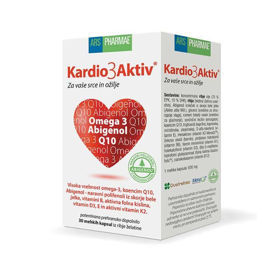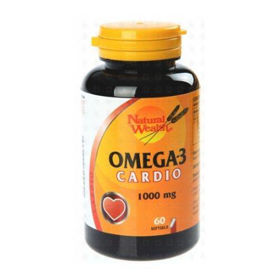The Public Agency of the Republic of Slovenia for Medicines and Medical Devices (JAZMP) dealt with the online advertising and sale of products that are presented with therapeutic properties, even though they are not registered as medicines when supervising the implementation of the Medicines Act.
The Cardione product is a powder drink, presented as "an agent that cleanses the blood of cholesterol, clots, and other impurities, promotes the renewal of blood cells and blood function." In contrast, one of the websites where the product is sold misused the identity of the Minister of Health and also published a fake interview with him in which he allegedly recommended the product.
That these are typical online scams is also shown by the fact that websites falsely promise the health effects of products that are not confirmed and verified. Comments from satisfied customers are also published on the website, and their credibility cannot be verified, which indicates that both the comments and the persons presented are fabricated.
How to properly take care of blood health
Maintaining healthy blood is critical to overall well-being. Your blood carries oxygen, nutrients, hormones, and waste products around the body. Always consult your doctors about any specific problems before making significant changes in your health regimen.
To ensure efficient operation, follow these tips:
- Eat a balanced diet: Iron is essential for producing red blood cells. Sources include red meat, fish, poultry, lentils, beans, and fortified cereals. Vitamin B12 is essential for blood formation. It is found in meat, dairy products, and fortified plant-based milk. Vitamin C improves iron absorption. It is found in citrus fruits, berries, peppers, and broccoli. Folate is necessary for the proper functioning of the blood. It is found in leafy greens, oranges, and beans. Omega-3 fatty acids include fish, flax seeds, and walnuts.
- Stay hydrated: Blood is about 50% water, so hydration is critical to maintaining viscosity and volume.
- Exercise regularly: this helps improve circulation and stimulates the growth of new blood vessels.
- Limit alcohol and tobacco use: Excessive alcohol consumption can affect the production of red blood cells, and smoking constricts blood vessels and reduces oxygen in the blood.
- Monitor cholesterol levels: High cholesterol can cause buildup in the arteries, affecting blood flow.
- Blood pressure control: High blood pressure can damage blood vessels and lead to cardiovascular disease.
- Limit your intake of added sugars and saturated fats: these can contribute to obesity, high cholesterol, and other health problems that affect blood health.
- Go for regular check-ups: checking for anemia, blood clotting disorders, and other blood conditions is essential.
- Manage stress: chronic stress can cause problems like hypertension.
- Limit your intake of processed foods: they are often high in salt, sugar, and unhealthy fats that can affect blood health.
- Avoid Toxins: Exposure to certain chemicals and toxins can affect blood health. Be aware of potential toxins in the environment and workplace.
- Limit the use of painkillers: Regular, long-term use of certain painkillers can affect blood health.
- Avoid infections: some can significantly affect blood health, so observe good hygiene.
- Limit exposure to high altitude: High altitudes can cause more red blood cell production, which may not be ideal for everyone, especially those with certain health conditions.
- Get enough protein: protein plays a role in forming blood cells and plasma.
- Limit caffeine: excessive caffeine can cause iron deficiency.
- Avoid iron overload: Although iron is essential, too much can be harmful and lead to conditions such as hemochromatosis.
- Be informed about medicines: some medicines can affect the health of the blood. Always talk to your doctor about possible side effects.










 Facebook
Facebook
 Instagram
Instagram
 info@moja-lekarna.com
info@moja-lekarna.com

